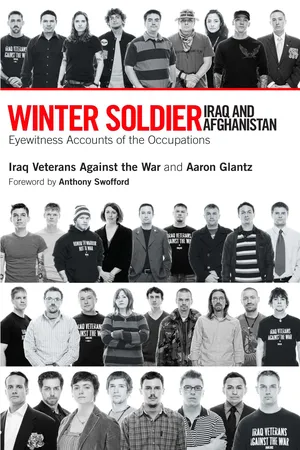
- 240 pages
- English
- ePUB (mobile friendly)
- Available on iOS & Android
About this book
"The only way this war is going to end is if the American people truly understand what we have done in their name."—Kelly Dougherty, executive director of Iraq Veterans Against the War
In spring 2008, inspired by the Vietnam-era Winter Soldier hearings, Iraq Veterans Against the War gathered veterans to expose war crimes in Afghanistan and Iraq. Here are the powerful words, images, and documents of this historic gathering, which show the reality of life in Afghanistan and Iraq.
Iraq Veterans Against the War argues that well-publicized incidents of American brutality like the Abu Ghraib prison scandal and the massacre of an entire family of Iraqis in the town of Haditha are not the isolated incidents perpetrated by "a few bad apples, " as many politicians and military leaders have claimed. They are part of a pattern, the group says, of "an increasingly bloody occupation."
"Here is the war as it should be reported, seeing the pain, refusing to sanitize an unprovoked attack that has killed over one million people. All over America are victims who have returned from this conflict with hideous wounds -- wounds that turn the lives of the entire family upside down.And the American people are not seeing this. Until now.
"Winter Soldier, an enormously important project of Iraq Veterans Against the War, cuts this debacle to the bone, exposing details hard to come by and even harder to believe. This is must reading for patriots who have already begun the effort to insure that this never happens again."
--Phil Donahue
"Winter Soldier makes us feel the pain and despair endured by those who serve in a military stretched to the breaking point by stop-loss policies, multiple combat tours, and a war where the goals and the enemies keep shifting... [and] also make[s] us admire the unbreakable idealism and hope of those men and women who still believe that by speaking out they can make things better both for themselves and for those who come after them."--San Francisco Chronicle
Formed in the aftermath of the US invasions of Iraq and Afghanistan, Iraq Veterans Against the War (IVAW) was founded in 2004 to give those who have served in the military since September 11, 2001, a way to come together and speak out against an unjust, illegal, and unwinnable war. Today, IVAW has over seven hundred members in forty-nine states, Washington, DC, Canada, and on military bases overseas.
Aaron Glantz is an independent journalist who has covered the Iraq War from the front lines. He is the author of How America Lost Iraq (Tarcher) and a forthcoming book on the Iraq War from the University of California Press.
Anthony Swofford is the author of Jarhead: A Marine's Chronicle of the Gulf War and Other Battles.
Tools to learn more effectively

Saving Books

Keyword Search

Annotating Text

Listen to it instead
Information
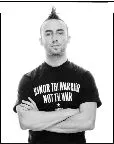
Kristofer Goldsmith
Sergeant, United States Army, Forward Observer
Deployments: January–December 2005, Sadr City
Hometown: Long Island, New York
Age at Winter Soldier: 27 years old

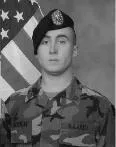
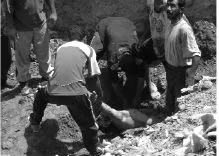
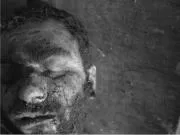
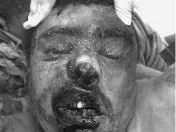
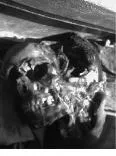
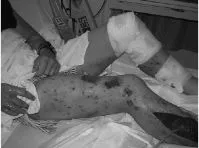

Lars Ekstrom
Lance Corporal, United States Marine Corps, Assault Man
Deployments: March–September 2005, USS Ponce
Hometown: Madison Heights, Michigan
Age at Winter Soldier: 22 years old
Table of contents
- cover
- Half Title Page
- Copyright Info
- Full Title Page
- Dedication
- Map of Iraq
- Foreword
- Message from Kelly Dougherty
- Introduction
- Rules of Engagement - Introduction
- Jason Wayne Lemieux, Sergeant, United States Marine Corps
- Jason Washburn, Corporal, United States Marine Corps
- Jon Michael Turner, Lance Corporal, United States Marine Corps
- Clifton Hicks, Private, United States Army
- Steven Casey, Specialist, United States Army
- Jesse Hamilton, Staff Sergeant, United States Army Reserve
- Jason Hurd, Specialist, Tennessee Army National Guard
- Adam Kokesh, Sergeant, United States Marine Corps Reserve
- Vincent Emanuele, Private First Class, United States Marine Corps
- Sergio Kochergin, Corporal, United States Marine Corps
- Logan Laituri, Sergeant, United States Army
- Hart Viges, Specialist, United States Army
- Racism and the Dehumanization of War
- Michael Totten, Specialist, United States Army
- Michael LeDuc, Corporal, United States Marine Corps
- Scott Ewing, Specialist, United States Army
- Jeffrey Smith, Specialist, Florida Army National Guard
- Brian Casler, Corporal, United States Marine Corps
- Christopher Arendt, Specialist, United States Army National Guard
- Andrew Duffy, Specialist, Iowa Army National Guard
- Sam Lynch, Specialist, North Carolina Army National Guard
- Matthew Childers, Corporal, United States Marine Corps
- Domingo Rosas, Sergeant, United States Army
- Geoffrey Millard, Sergeant, New York Army National Guard
- Michael Prysner, Corporal, United States Army Reserve
- Civilian Testimony: The Cost of War in Iraq
- Huda Jabbar Mohammed Ali, Resident of al-Nidhal District, Baghdad
- Zahara Abbas, Iraqi Refugee Living in Syria
- Mohammed Amr, Resident of Adhamiya, Baghdad
- Shayma, Eleven-year-old Student, Resident of Adhamiya, Baghad
- Salam Talib, Journalist and Computer Engineer, Resident of Baghdad
- Divide to Conquer: Gender and Sexuality in the Military
- Jen Hogg, Sergeant, New York Army National Guard
- Abby Hiser, Sergeant, Wisconsin Army National Guard
- Patricia McCann, Specialist, Illinois Army National Guard
- Wendy Barranco, Specialist, United States Army Reserve
- Anonymous, United States Coast Guard
- Nathan Peld, Petty Officer Second Class, United States Navy
- Jeff Key, Lance Corporal, United States Marine Corps Reserve
- Margaret Stevens, Specialist, New Jersey Army National Guard
- The Crisis in Veterans’ Health Care and the Costs of War at Home
- Zollie Peter Goodman, Petty Officer, United States Navy
- Eric Estenzo, Corporal, United States Marine Corps Reserve
- Eli Wright, Sergeant, United States Army
- Adrienne Kinne, Sergeant, United States Army Reserve
- Joyce and Kevin Lucey, Parents of Corporal Jeffrey Lucey, United States Marine Corps Reserve
- Carlos Arredondo, Father of Lance Corporal Alexander Arredondo, United States Marine Corps (KIA)
- Fernando Suarez del Solar, Father of Lance Corporal Jesus Alberto
- Nancy Lessin and Charlie Richardson, Son deployed with United States Marine Corps
- Corporate Pillaging and the Breakdown of the Military
- Steve Mortillo, Specialist, United States Army
- Daniel Fanning, Sergeant, Wisconsin Army National Guard
- Kristofer Goldsmith, Sergeant, United States Army
- Lars Ekstrom, Lance Corporal, United States Marine Corps
- Luis Carlos Montalvan, Captain, United States Army
- The Future of GI Resistance
- Phil Aliff, Private, United States Army
- Garett Reppenhagen, Specialist, United States Army
- Ronn Cantu, Staff Sergeant, United States Army
- Concluding Remarks from Camilo Mejía, Chair of the Board, Iraq Veterans Against the War
- Afterword by Aaron Glantz
- Notes
- Glossary of Military Terms
- Appendix: Rules of Engagement Card
- Author Acknowledgments
- Contributor Biographies
- About Haymarket Books
- Also from Haymarket Books
Frequently asked questions
- Essential is ideal for learners and professionals who enjoy exploring a wide range of subjects. Access the Essential Library with 800,000+ trusted titles and best-sellers across business, personal growth, and the humanities. Includes unlimited reading time and Standard Read Aloud voice.
- Complete: Perfect for advanced learners and researchers needing full, unrestricted access. Unlock 1.4M+ books across hundreds of subjects, including academic and specialized titles. The Complete Plan also includes advanced features like Premium Read Aloud and Research Assistant.
Please note we cannot support devices running on iOS 13 and Android 7 or earlier. Learn more about using the app